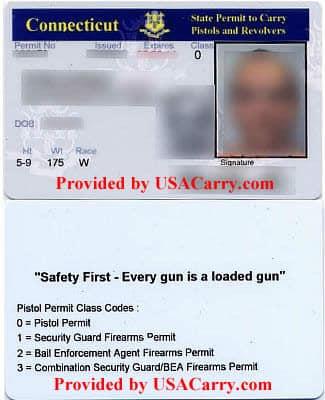Table of Contents
- Connecticut’s New Legislation on Concealed Carry Permits for Stun Guns
- Legal Implications and Compliance Requirements for Residents
- Impact on Personal Safety and Self-Defense Practices
- Guidance for Applying and Maintaining a Stun Gun Concealed Carry Permit
- In Conclusion
Connecticut’s New Legislation on Concealed Carry Permits for Stun Guns
The recent legislative update in Connecticut has introduced significant changes to the carry regulations involving stun guns. Under the new law, individuals are now required to obtain a concealed carry permit specifically for stun guns, aligning the regulation of these non-lethal weapons more closely with firearms oversight. This development reflects the state’s proactive approach to addressing public safety concerns and ensuring that stun gun possession is subject to proper vetting and authorization.
The permit process includes:
- Mandatory background checks
- Completion of safety training courses
- Strict documentation and reporting requirements
Legal Implications and Compliance Requirements for Residents
In Connecticut, residents are now subject to tightened regulations surrounding the possession and carry of stun guns, requiring individuals to obtain a concealed carry permit before legally carrying these devices. This shift aligns stun guns with other regulated weapons, emphasizing the state’s commitment to public safety and responsible ownership. Residents must complete a thorough background check and fulfill all state-mandated safety training courses to qualify for a permit, demonstrating a clear understanding of stun gun use and legal boundaries.
Failure to comply with these stringent requirements can lead to significant legal repercussions, including fines, criminal charges, and confiscation of the stun gun. Additionally, residents should be aware of the following key points for compliance:
- Permit application: Submissions require proof of residency, completion of a state-approved training program, and a detailed background investigation.
- Restricted locations: Even with a permit, stun guns are prohibited in certain public spaces such as schools, government buildings, and private property where explicitly banned.
- Renewal obligations: Concealed carry permits for stun guns must be renewed regularly to remain valid, requiring up-to-date training and background verifications.
Impact on Personal Safety and Self-Defense Practices
With the new legislative change mandating concealed carry permits for stun guns, residents must now reassess how they approach their personal security strategies. This added legal requirement aims to enhance public safety but also introduces a layer of regulation that may impact the accessibility and immediate usability of stun guns in self-defense scenarios. Individuals who previously relied on stun guns as a non-lethal defense tool must now navigate permit applications, training, and compliance measures, which could delay their ability to carry or deploy these devices when needed.
Key implications include:
- Increased accountability: The permit process encourages responsible ownership through background checks and mandatory training, potentially reducing misuse.
- Shift in self-defense preparedness: Permit requirements may prompt users to explore alternative or additional defense tools, affecting overall self-defense tactics.
- Legal risks and compliance challenges: Failure to obtain the required permit could lead to criminal charges, underscoring the importance of staying informed about evolving regulations.
Guidance for Applying and Maintaining a Stun Gun Concealed Carry Permit
To lawfully carry a stun gun concealed in Connecticut, applicants must first obtain a specialized permit, which requires compliance with stringent state regulations. The application process mandates submission of detailed personal information, proof of residency, and completion of a background check to affirm eligibility. Applicants are also required to undergo a safety and handling course conducted by a state-approved instructor, ensuring responsible use and awareness of legal boundaries. Following state police approval, the issued permit grants legal authorization to carry a stun gun within Connecticut, subject to specific limitations outlined in state statutes.
Maintaining a valid concealed carry permit for stun guns necessitates strict adherence to renewal protocols and operational guidelines. Permit holders should keep documentation accessible when carrying their stun guns and stay informed on any legislative changes that could affect permit status or weapon use. Key maintenance steps include:
- Timely Renewal: Submit renewal applications before the permit expiration date to avoid interruptions.
- Legal Compliance: Abstain from using the stun gun in any manner inconsistent with self-defense as defined by Connecticut law.
- Safe Storage: Ensure stun guns are securely stored when not in use to prevent unauthorized access.
- Notification Requirements: Inform local law enforcement of any changes in residence or contact information.
By following these guidelines, permit holders can uphold lawful possession and contribute to public safety while exercising their rights under Connecticut’s regulatory framework.
In Conclusion
In summary, Connecticut’s new requirement for concealed carry permits to possess stun guns marks a significant development in the state’s approach to regulating non-lethal self-defense devices. As the law takes effect, residents and visitors alike will need to familiarize themselves with the updated legal framework to ensure compliance. This measure reflects Connecticut’s ongoing efforts to balance individual safety with public security, highlighting the evolving landscape of weapons regulation within the state.Check Our Other Blogs
- StunGun – Your Trusted Source for Stun Guns, Laws, and Self-Defense Tips
- PepperSprayLaws – Your Trusted Resource for Pepper Spray Information
- StunGunLaws – Your Trusted Guide to Stun Gun Legality and Safety





